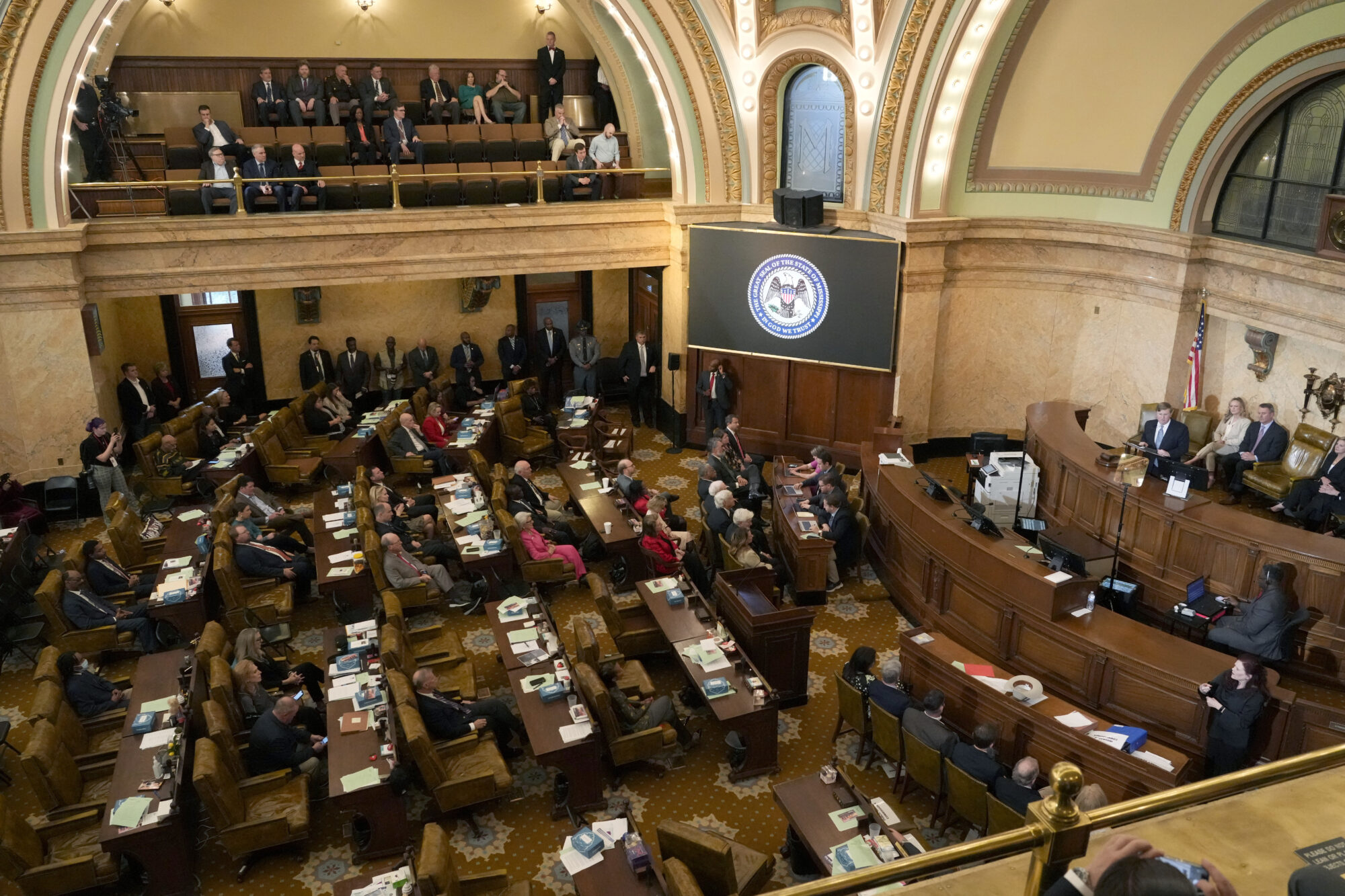Mississippi added as a full member of Pan-Pacific UAS Test Range Complex
The State of Mississippi has joined Alaska, Oregon, and Hawaii as a full member in the University of Alaska Fairbanks (UAF) led Pan-Pacific UAS Test Range Complex (PPUTRC), one of the Federal Aviation Administration’s (FAA) seven Unmanned Aircraft System (UAS) Test Sites.
The Mississippi program will be led by Mississippi State University, and will include several UAS test and evaluation sites in the state. MSU is also the lead for the FAA’s UAS Center of Excellence — the Alliance for System Safety of UAS through Research Excellence, or ASSURE.
The announcement was made Tuesday [Nov. 8] during the opening of the Alaska UAS Interest Group annual meeting in Anchorage.
“This is a significant and strategically important alliance for the unmanned aircraft system sector in Mississippi. It gives academia and industry greater options for developing, testing and evaluating these aircraft. I commend Mississippi State University for its leadership in this growing aviation sector,” said U.S. Senator Thad Cochran, R-Miss.
The PPUTRC is the largest and most diverse of the seven test site programs offering a range of geographic and climactic test conditions, including arctic, tropical, high-desert, mountainous, maritime, controlled urban, and many others.
“The addition of Mississippi to the PPUTRC adds increased capabilities to the Test Site including diverse subject matter experts, additional test and evaluation infrastructure, and more opportunities to support maritime operations, which are important to all PPUTRC members,” said Cathy Cahill, chief executive officer of the PPUTRC and director of UAF’s Alaska Center for Unmanned Aircraft Systems Integration.
The addition of Mississippi to the program provides local test site capabilities to support UAS stakeholders in the Southeastern United States.
“We have several ideal locations in Mississippi for UAS testing and evaluation, and an all year flight environment. MSU will be working with UAS manufacturers, users, and potential users in the Southeast U.S. to support their test and evaluation, science and research, and pre-commercial needs,” said Robert Moorhead, MSU’s UAS lead on the project.
Since its inception in 1948, the Raspet Flight Research Laboratory has served as a unique Mississippi State University-based laboratory engaged in aeronautics R&D. Raspet has a global reputation for composites research, and it has served as a start-up facility for various aerospace companies in the Gulf South’s growing Aerospace Corridor providing workspace, technical training, and assistance with product development and research.
Today, Raspet is home to cutting-edge UAS research and development in partnership with Mississippi State’s Geosystems Research Institution and Bagley College of Engineering’s Department of Aerospace Engineering, as well as the MSU-led Alliance for System Safety of UAS through Research Excellence.
“Our partnership with UAF in both the ASSURE program and now the PPUTRC aligns two very strong manned and unmanned aviation programs and will benefit both Mississippi and Alaska. We are looking forward to working with our new partners in Oregon and Hawaii as we build the strongest UAS alliance in the United States,” MSU Vice President for Research and Economic Development David Shaw said.
About ASSURE: The Alliance for System Safety of UAS through Research Excellence (ASSURE) is comprised of 22 of the world’s leading research institutions and more than 100 leading industry/government partners. This coalition includes: Mississippi State University, Drexel University, Embry-Riddle Aeronautical University, Kansas State University, Montana State University, New Mexico State University, North Carolina State University, Oregon State University, University of Alabama-Huntsville, University of Alaska-Fairbanks, University of California Davis, University of Kansas, University of North Dakota, The Ohio State University, Wichita State University, Auburn University – Affiliate Member, Concordia – Affiliate Member, Indiana State University – Affiliate Member, Louisiana Tech University – Affiliate Member, Tuskegee University – Affiliate Member, University of Southampton – Affiliate Member, and Sinclair Community College – Affiliate Member. ASSURE members are core to three FAA UAS test sites, lead four FAA research centers, and possess seven airfields and a 340 UAS fleet.
About UAF’s Alaska Center for Unmanned Aircraft Systems Integration: The University of Alaska Fairbanks began UAS operations in 2001, and over the years had expanded its scope, the equipment it operated, and the variety and complexity of research projects it executed. In December 2012, the University of Alaska’s Board of Regents, in recognition of the importance and growth of the unmanned aircraft program, established the Alaska Center for Unmanned Aircraft Systems Integration – RDT&E, or ACUASI, in the Geophysical Institute of the University of Alaska Fairbanks and tasked it with leading all unmanned aircraft efforts for the entire University of Alaska system. It was also tasked to pursue opportunities with the FAA such as the FAA test site program. In 2013 ACUASI submitted its proposal to the FAA for one of the six test sites established by the 2012 FAA Modernization and Reform Act, and in December 2013 the FAA announced that the University had been selected. The Pan-Pacific UAS Test Range Complex reports to ACUASI, but also includes principal partners in Oregon, Hawaii, and now Mississippi as well as 56 non-state partners located all over the U.S. and internationally. Ranges are located in the four states as well as in Iceland. Contact Sue Mitchell, public affairs office at semitchell@alaska.edu.
MSU is Mississippi’s leading university, available online at www.msstate.edu.
11/9/16







